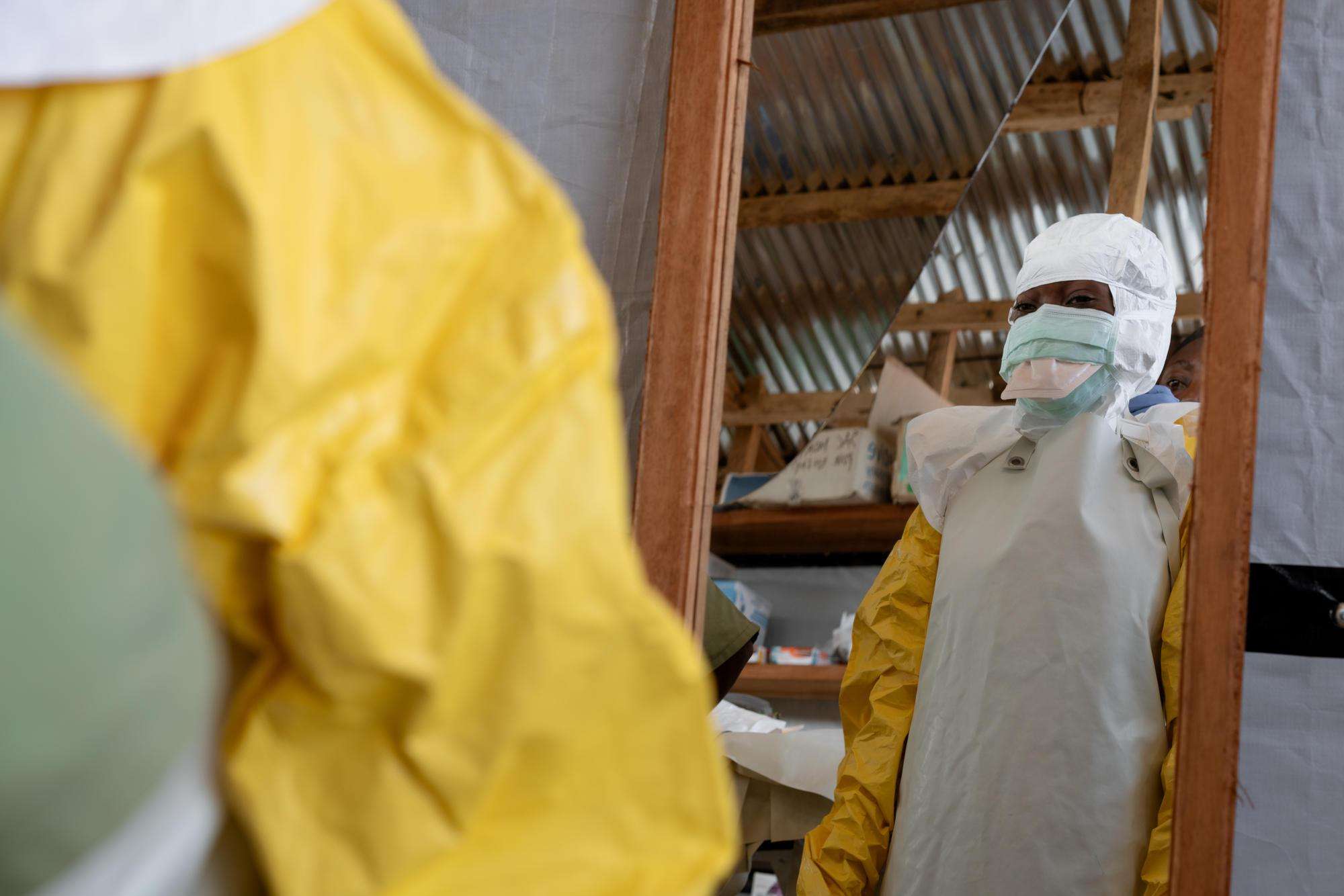Almost six months after the declaration of the Ebola epidemic in northeastern Democratic Republic of Congo (DRC), response teams on the ground, including Doctors Without Borders/Médecins Sans Frontières (MSF), are still struggling to gain control of the outbreak. So far, 619 people have been infected with the virus and 361 of them have died in what is now the second-largest Ebola outbreak on record and the largest ever in DRC.
As the number of new confirmed Ebola cases grows, a heightened climate of unrest linked to the presidential elections has further restricted the population’s access to health care in and around the city of Beni, where several health centers were damaged during political protests. This is making the prompt identification of new Ebola cases more challenging, as remaining health centers become overloaded.
“In this situation people might have no other choice than to seek medical help in health facilities that do not have adequate triage or infection prevention and control measures in place, which makes the risk of contamination higher,” says Laurence Sailly, MSF emergency coordinator in Beni. “We are talking about a population that has endured many years of conflict. On top of that, they are now faced with the deadliest Ebola outbreak the country has ever seen. The unrest of these past weeks adds even more to their plight by limiting their chances of finding adequate medical care.”
Since the outbreak was declared on August 1, 2018, MSF has been steadily scaling up patient care activities to tackle the increasing number of confirmed Ebola cases, most recently in the Butembo, Katwa, and Komanda health zones. This includes the expansion of the Ebola treatment center (ETC) in Butembo from 64 to 96 beds, the opening of a new ETC in Katwa—east of Butembo—and the opening of a transit center in Bwana Sura in Komanda, Ituri Province, where new hotspots have been identified.

“With more and more cases coming from the city of Butembo, which has a population of almost a million people, it was necessary to set up a second treatment center very rapidly,” says Emmanuel Massart, MSF project coordinator in Katwa. “We are also addressing the need to gain the trust of the affected communities. We designed the Katwa treatment center with the aim of offering greater capacity for patient care. Large windows allow our patients to see the faces of the doctors and nurses treating them and make family visits easier, reestablishing some of the human contact that is so hard to maintain in Ebola treatment centers.”
Raising awareness among communities about Ebola containment measures remains one of the main challenges of the outbreak response. But the tension that followed the postponement of the elections in Beni and Butembo increased the distance between the population and Ebola response activities, making it difficult to reach communities. People are now even more reluctant to accept infection prevention and control practices such as safe and dignified burials or the decontamination of health centers and households.
“With Ebola, treatment centers alone are not enough. Connecting with the communities and building mutual trust is key to get the outbreak under control,” says Roberto Wright, MSF anthropologist in Katwa. “We need to increase our efforts to engage the population as active participants in the fight against the outbreak. This includes listening to their broader needs. For instance, at the end of December, we distributed trauma kits to local health centers to help their response to potential outbursts of violence. Likewise, our transit centers are not only there to identify Ebola patients and refer them for treatment, but also to ensure adequate care for other health issues, which is a clear need for this population. Visiting communities to present our activities before we actually launch them can go a long way in terms of improving mutual understanding and facilitating better collaboration in the long run.”
MSF teams have been responding to the Ebola epidemic in North Kivu and neighboring Ituri Province since it was declared on August 1, 2018. MSF runs Ebola treatment centers in the towns of Butembo and Katwa, transit centers in Beni and Bwana Sura (Komanda Health Zone), and an isolation center in Bunia. MSF also helped with the vaccination of frontline health workers and carries out infection prevention and control and awareness-raising activities among health workers and affected communities.
MSF maintains complete independence from all political, religious, or military powers and observes impartiality in its actions based on an assessment of medical needs. The independence of the association is ensured by funding, 96 percent of which comes from private donors.




